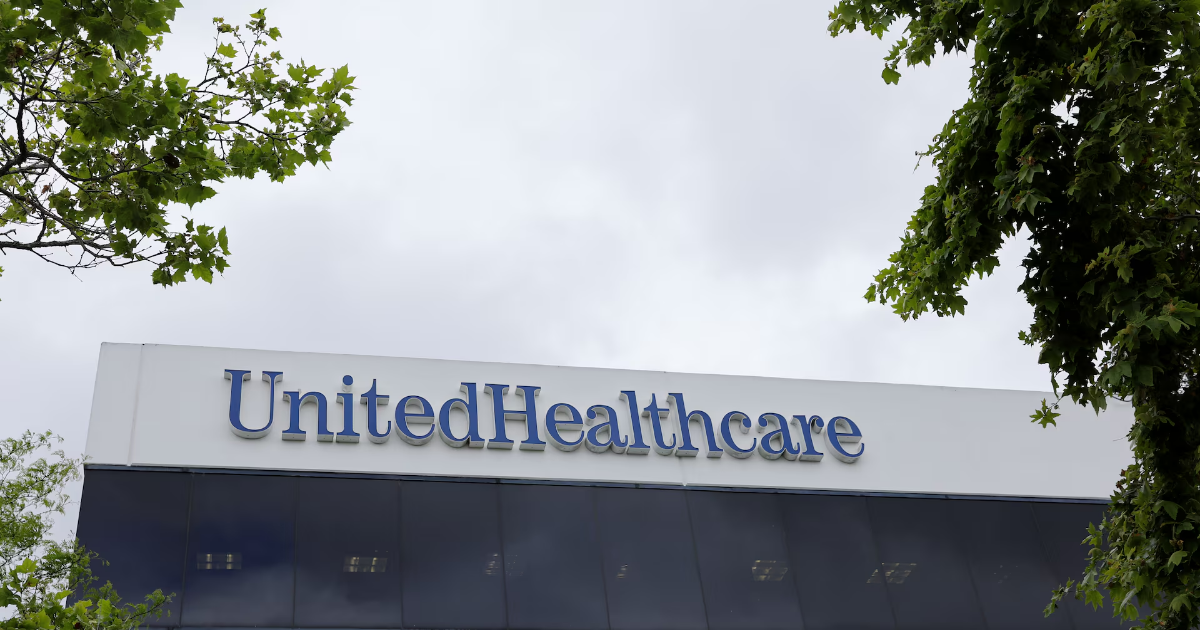April 17 (Reuters) – UnitedHealth Group (UNH.N)
, opens new tab surprised investors with what its CEO said was an “unusual and unacceptable” quarterly earnings miss, and it lowered its outlook for the full year due to higher-than-expected medical costs, sparking a more than 20% selloff in shares that reverberated across the sector.
The company’s first earnings miss since 2008 and accompanying bleak forecast sent investors to the exits, as they were hoping the U.S. insurer would maintain its profit outlook on expectations that demand for medical services would be similar to 2024. UnitedHealth has historically provided a conservative forecast, at least two investors said.
Sign up here.
“Nobody was expecting this level of a miss or cut to guidance,” said Kevin Gade, chief operating officer of Bahl & Gaynor, which owns UnitedHealth’s stock.
UnitedHealth reported adjusted earnings of $7.20 per share, also below expectations of $7.29 per share. Shares were down 23% by midday on heavy trading.
UnitedHealth said the need for medical care rose beyond what the health insurer had expected, led by physician and outpatient services. It also cited “unanticipated changes” in its Optum business that impacted planned 2025 reimbursements.
The U.S. health insurance industry has been grappling with increased costs since mid-2023 due to a surge in demand for healthcare services under government-backed Medicare plans for older adults or individuals with disabilities. While other insurers slumped on UnitedHealth’s news, they recovered some losses after rival Elevance Health (ELV.N)
, opens new tab said it was sticking with its current quarterly outlook, even as UnitedHealth shares continued to sink.
Its Optum Health unit, which includes the prescription drug plans it runs for Medicare, also faced pressure from patients who required more care and the continued effects of funding cuts for Medicare plans implemented under the Biden Administration.
The company added more patients in its Optum business, a portion of whom joined from other plans that exited markets, and it underestimated the revenue or the premium that they would be seeing on these new members, said Leerink Partners analyst Whit Mayo.
These patients experienced a surprising lack of engagement last year, leading to 2025 payments from the government that are well below what the company would expect, said CEO Andrew Witty on a post-earnings conference call.
The reimbursement rates were “not reflective of their actual health status,” said Witty.
Patients seeking follow-up visits with specialists also generated higher costs for the insurance business, said Tim Noel, CEO of UnitedHealthcare, the company’s insurance unit.
The corporate logo of the UnitedHealth Group appears on the side of one of their office buildings in Santa Ana, California, U.S., April 13, 2020. REUTERS/Mike Blake Purchase Licensing Rights
Corporate group Medicare plans that serve retirees, which generally pay more for services, also reduced usage of their plans and left the company with lower-income patients.
“We’ve really never seen this dynamic before,” said Noel, citing that these pressures were related to Medicare funding cuts.
UnitedHealth Group now expects 2025 adjusted profit per share to be between $26 and $26.50 per share, compared with its prior forecast of $29.50 to $30 per share. Analysts were expecting a profit of $29.73 per share for 2025, according to LSEG data.
The insurer’s stock had rallied nearly 12% in the 10 days leading up to Thursday’s results.
Industry peers Elevance, CVS Health (CVS.N)
, opens new tab, Cigna (CI.N)
, opens new tab, Centene (CNC.N)
, opens new tab and Humana (HUM.N)
, opens new tab were down between 1% and 6%. Elevance reports its quarterly results on April 22.
Shares of health insurers have defied the recent market rout
Today’s comments will call into question forecasts for every other health insurance peer, said TD Cowen analyst Ryan Langston.
Health insurance stocks had a rough 2024, hurt by lower government payments, elevated medical costs and public backlash against the sector after the murder of a UnitedHealth insurance unit head, Brian Thompson, late last year.
Thompson’s fatal shooting also unleashed a social media storm of patient dissatisfaction and ire over the health insurance industry’s practices, adding to the company’s woes.
However, insurer stocks have performed better in the past months despite a market rout triggered by escalating worries over President Donald Trump’s tariffs.
“This was a stock that was a safe haven for so many among tariffs and policy uncertainty,” Gade said.
Reporting by Bhanvi Satija and Sriparna Roy in Bengaluru, Amina Niasse in New York; Editing by Anil D’Silva and Marguerita Choy
Our Standards: The Thomson Reuters Trust Principles.
Sriparna reports on pharmaceutical companies and healthcare in the United States. She has a master’s degree in English literature and post graduate diploma in broadcast journalism.
Bhanvi Satija reports on pharmaceutical companies and the healthcare industry in the United States. She has a postgraduate degree in International Journalism from City, University of London.
